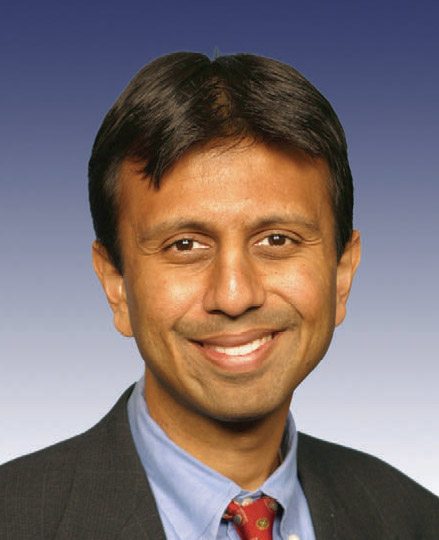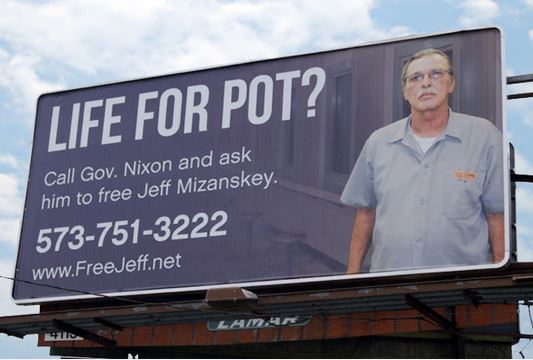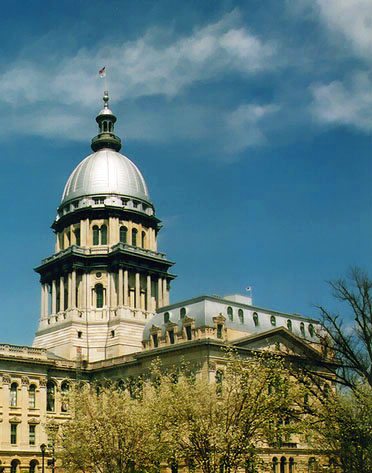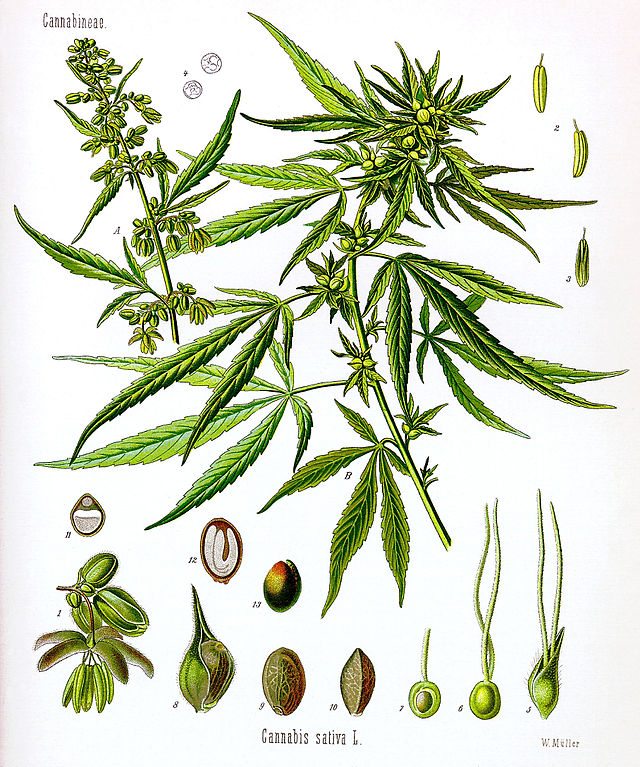Longtime activist John Sajo’s open letter to Oregon Governor Kate Brown is very pertinent to the Senate Bill 964 debate as hardly anyone has as much experience with the Oregon cannabis community than Mr. Sajo. The leader of the 1986 legalization attempt, Sajo articulately illustrates the futile nature of trying to curtail the black market with rules and regulations that will only push Oregon growers underground. This letter was first published at www.CannabisAndSocialPolicy.org:
This is an open letter to Governor Kate Brown regarding SB 844, and tracking medical marijuana.
My name is John Sajo and I would like to comment on your May 1, 2015 letter to the Joint Committee on Implementing Measure 91.
I have been an advocate for marijuana reform for over thirty years. I collected my first signatures on a marijuana initiative petition in 1982. I have spoken to legislators about marijuana laws every session since then. I advised the drafters of measure 67 (the OMMA) on the language of that law and worked on that 1998 campaign. I co-founded Voter Power, an Oregon nonprofit which worked on implementing the OMMA and advocated for broader marijuana reform. I co-authored measures 33 and 74 which unsuccessfully attempted to legalize dispensaries in 2004 and 2010. I served on the Advisory Committee on Medical Marijuana from 2006-2010. I advised the sponsors of measure 91 on the language of the initiative and contributed financially to the campaign. I served on the Roseburg Advisory Committee on Medical Marijuana in 2014. I am currently the Executive Director of the recently formed Umpqua Cannabis Association.
There is much discussion about eliminating the black market as one of the goals of Measure 91. Breaking the black market down a little bit will help analyze how to reduce it. There are many different aspects of the black market but they are not equally dangerous.
The black market is any sales of marijuana outside the legal, regulated system. After July 1 , when legalization takes effect, there will be many ways marijuana can be transferred between adults that will be legal but outside the regulated market. Any adult will legally be able to give any other adult up to an ounce of marijuana. Anyone holding a medical marijuana card can already legally give any other cardholder up to 24 ounces of marijuana. Thousands of pounds of marijuana will be exchanged legally between adults outside of the regulated market.
An adult selling anyone marijuana anywhere other than in a medical dispensary or rec store will be illegal. Anyone selling marijuana to a minor will be illegal. These transactions constitute the in-state black market. They can range from a friend or neighbor exchanging cash for marijuana at home to someone buying marijuana from a stranger on the street. There have been established criminal networks distributing marijuana illegally for decades.
The out-of-state black market is noteworthy because the Cole memo requires states to maintain a robust regulatory structure to prevent it. Oregon has a long history of exporting marijuana. In 1986, Oregon marijuana legalization activists campaigned with a brochure headlined ” Oregon ‘s Billion Dollar Crop” that was based on NORML’s estimate of the value of Oregon ‘s marijuana crop that year. Marijuana seized in other states has been linked to OMMP gardens in many cases but this must be considered in the context of an underground market that was estimated at a billion dollars thirteen years before the OMMA even existed. The percentage of Oregon marijuana exports related to the OMMP is unclear.
Many marijuana grows linked to Mexican cartels have been busted on public lands in Oregon . The largest seizure a few years ago was over 100,000 plants. Presumably most of this marijuana is exported from Oregon through existing criminal networks. There is also a substantial amount of marijuana “hidden in plain sight” in basements, warehouses and outdoors that is cultivated by Oregonians illegally and shipped out of state. Many out of state marijuana seizures are linked to Oregonians with no ties to the OMMP.
After July, marijuana will illegally “leak” out of Oregon through many different channels. Marijuana will be shipped through the mail and through private carriers. People will drive marijuana out of state in their cars. People will fly to other states with marijuana in their luggage. Millions of cars and millions of airline passengers leave Oregon every year. To put the challenge of stopping leakage in perspective note that Colorado sold 140,000 pounds of marijuana in 2014. If Oregon produces a similar amount it would only take a half dozen semi trucks to carry the entire state’s production. Smugglers are no doubt becoming more sophisticated and shipping more marijuana concentrates. A million dollars worth of “shatter” could easily fit in one car. Stopping leakage from Oregon to other states should be recognized as an unattainable goal in a free society.
SB 844 proposed reporting and potential inspections of small medical marijuana gardens as part of a robust regulatory structure to satisfy the Cole memo. This was called “tracking light” but for the thousands of patients and growers who would be subject to warrantless searches of their homes it is not. You write, “I fear that a self-“reporting system of tracking in not sufficiently reliable.” Please consider the burden more rigorous tracking will place on individual patients and medical marijuana growers who are helping a small number of patients.
There are many OMMA patients who depend on their own garden or a grower because they will never be able to afford to buy marijuana at a dispensary. In 2014, 44% of OMMA patients qualified for low income discounts. Intrusive regulations may drive growers for these patients out of the OMMP system and will leave these patients with a difficult time obtaining medical marijuana.
I support tracking of large commercial marijuana farms, but tracking of small patient gardens is an unwarranted government intrusion into the private lives of patients and people trying to help them. Some people support those provisions because they believe it is necessary to satisfy the Cole memo.
The Cole memo does not specify exactly what is required to continue federal tolerance of Oregon ‘s legalization law. It does not mention tracking. In his testimony to the Senate Judiciary Committee on September 10, 2013 , James Cole did say, ” As the guidance explains, a jurisdiction’s regulatory scheme must be tough in practice, not just on paper. It must include strong enforcement efforts, backed by adequate funding.” There will never be adequate funding to audit every small garden. Oregon has allowed patients and growers to sell untracked marijuana to dispensaries for over a year and the federal government has shown no interest in shutting this down. Washington has a chaotic medical marijuana market with no tracking and the federal government has not acted to shut that down. In December, Congress passed a budget rider that forbids the U.S. Justice Department from spending money pursuing activity legal under a state medical marijuana law and the significance of this is currently being litigated.
Tracking is appropriate for the commercial marijuana industry because it will raise quality, improve farmers’ best practices, and promote efficiency. It will allow any contaminated product to be traced back to its source to identify the cause and minimize any adverse public health impact. Tracking large producers, backed by audits will minimize leakage where it would be most significant. Tracking all the small gardens is unrealistic. Requiring tracking on small cooperative gardens merely adds a burden on patients and their caregivers. What if a patient growing for other patients fails to report or makes mistakes. Are we going to penalize a struggling sick person for being unable to comply with arbitrary and unnecessary red tape?
Tracking finished products is one thing. Tracking plants is quite another. The quality of information in a plant tracking system is suspect. Potentially millions of events and measurements will be tracked. Who is going to audit all that data? When a farmer reports that a plant was destroyed due to mold or bugs, is an inspector going to come check the compost pile? If cameras are required to audit the tracking system in real time, are they going to include night vision sensors to prevent cheaters from picking and diverting flowers in the dark? Can we be confident that hackers will never be able to modify the online data? How will we insure that OLCC employees are not corrupted the old fashioned way with bribes or threats? Tracking may sound good in the abstract but when applied to the real world situation of monitoring growing plants in diverse environments its effectiveness should be balanced against costs.
The only way to diminish the black market is to create a thriving efficient regulated market that significantly undercuts black market prices and offers wider selection, better quality and a safe comfortable environment. The regulated market can produce marijuana much cheaper by allowing commercial growers to cultivate without arbitrary plant limits. The black market can be defeated by market forces, not by arbitrary rules with lots of unintended consequences.
In your letter, you refer to the “costs of a seed-to-sale tracking system for all licensed or permitted marijuana growers…” First, I argue that the dollar costs of actually providing anything beyond the self-reporting system for all the 35,000 OMMA gardens would be astronomical. I doubt it is even possible. Second there is a huge cost in terms of personal rights. Self-reporting and possible inspections are already violations of the right to unwarranted search and seizure. Beyond that, these provisions are causing discomfort and stress to thousands of patients and the people that care for them. At a time when any Oregon household can possess and cultivate marijuana, why should patients or people assisting them by producing marijuana for them be subject to greater scrutiny.
Oregon can and will greatly diminish the in-state black market. The most important part of this will be much lower prices. The problem with this solution is that it will exacerbate the problem of out of state leakage. As Oregon prices drop, more out of state tourists will be attracted here and some will try to take marijuana home to other states. This highlights the real elephant in the room – federal law. It might be worth pointing out that some of this out of state leakage is desperate medical patients from other states seeking relief in states where their medicine is legal. Last year a Missouri patient traveled to Colorado to see if marijuana would help her. It did. She tried taking some home but was arrested driving through western Kansas , where she died in jail because she was denied access to her prescription drugs. An Oregon patient I know was convicted of a felony for mailing marijuana to herself so she could medicate while visiting family in another state. We might also ask if it isn’t better for Americans in other states to be buying marijuana from Oregon rather than supporting the Mexican drug cartels which represent a clear and present danger to national security?
Oregon must implement Measure 91 to satisfy the Cole memo but there are many ways to do so. We should also be aware that actually succeeding in its goals would have some negative unintended consequences. I suggest that Oregon should also spend time and resources trying to lead the federal government away from a dysfunctional and destructive policy that is unsupported by either the citizens of our country or science.
What are some alternatives to seed to sale tracking to minimize out-of-state leakage? I suggest focus tracking on people and money, not plants and patients. There is a virtual gold rush of out-of-state investors seeking to buy marijuana farms and businesses. The most significant and destructive leakage would be if organized criminal enterprises like Mexican cartels or biker gangs in other states own and control Oregon farms. Regardless of tracking, I believe such organizations would be able to divert large amounts of marijuana into their existing distribution networks. This activity could be minimized by delaying out-of-state ownership of marijuana farms businesses and carefully regulating investment in such business. This would prioritize focusing on the most harmful aspects of leakage and would do so with inexpensive effective tactics.
Again I suggest that the best way to eliminate the black market is to allow the legitimate market to undercut it. Timing is very important. Senator Ferrioli’s suggestion that medical dispensaries should be allowed to sell to adult users on July 1 makes sense. Allowing people to legally possess marijuana but giving them no way to legally obtain it for months -if they grow their own- or a year – if they buy at OLCC licensed stores- is a recipe for stimulating, not eliminating, the black market.
Thank you for considering these ideas. I look forward to communicating further with your administration as Oregon implements legal marijuana.
John Sajo
Director, Umpqua Cannabis Association
Mr. Sajo is right. Oregon will not curtail the black market with extensive rules and regulations. Anyone familiar with the Oregon cannabis community, especially the growers in Southern Oregon, will know that they have strength in numbers and they can all go to the black market and Oregon authorities will not be able to stop the flow of marijuana into the black market, they will only exacerbate the flow. Only by making rules and regulations sensible, will Southern Oregon growers be willing to come into the light of the day.





















